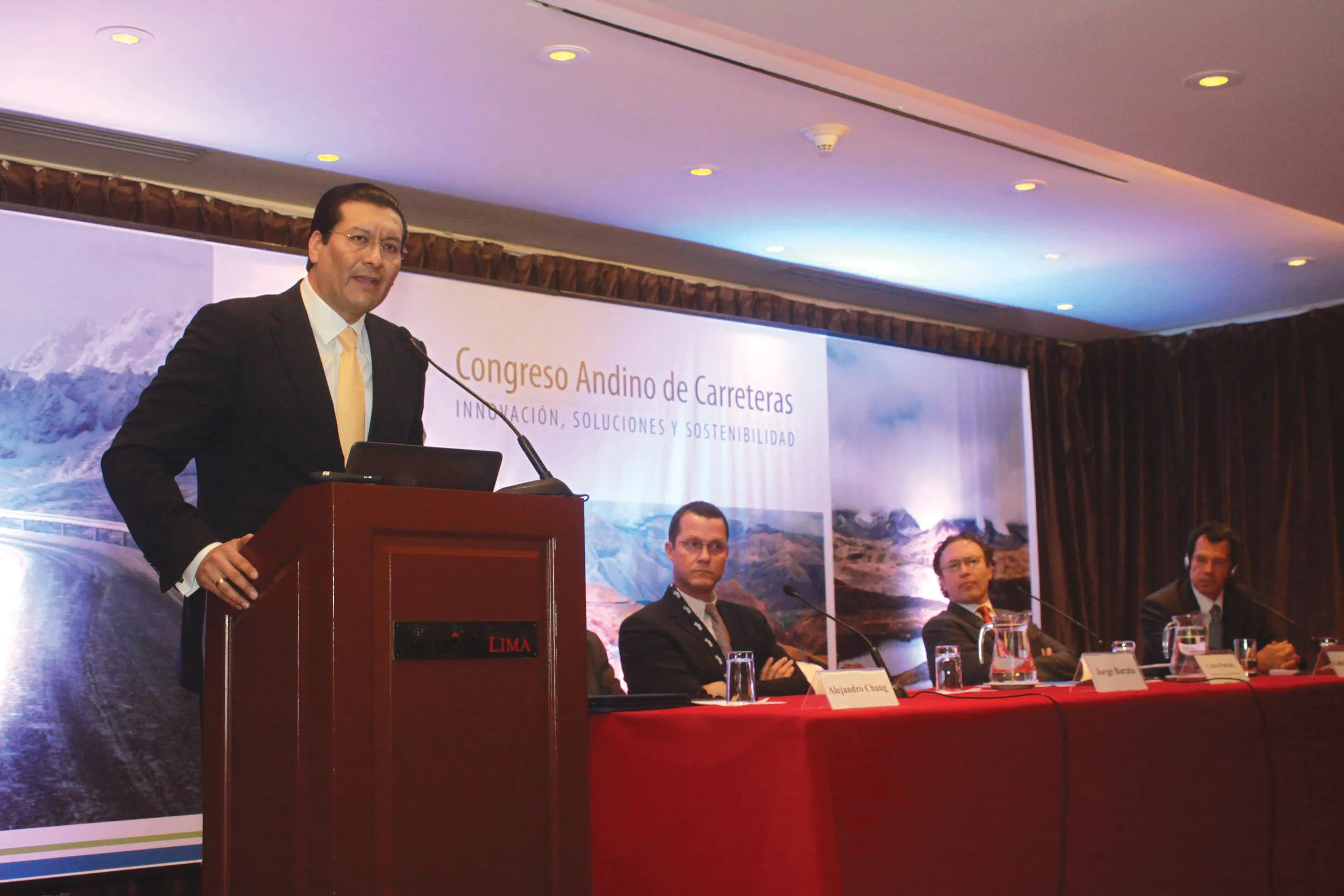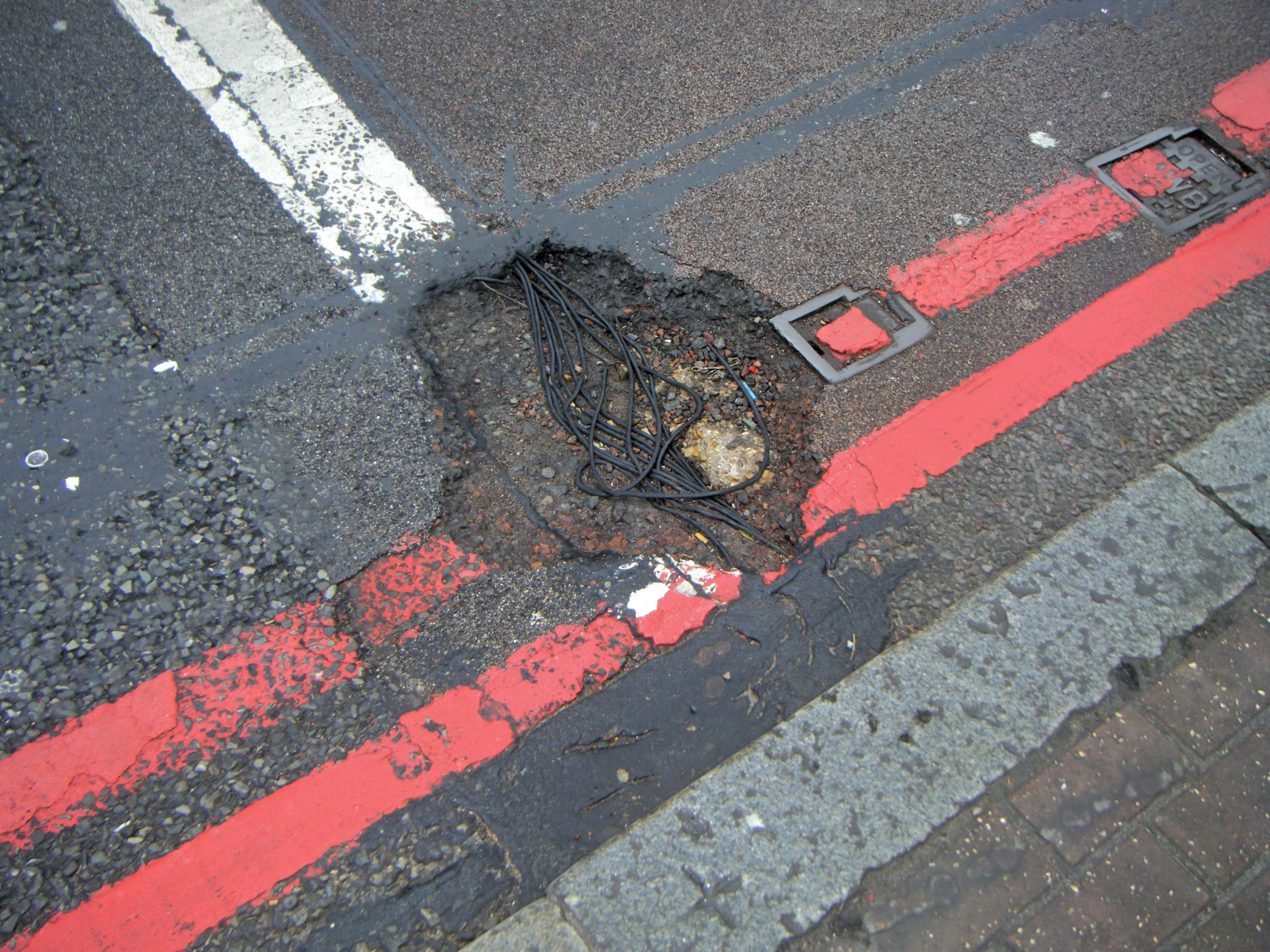From 18-20 October 2016, the European Union Road Federation (ERF), in partnership with the Road Safety markings Association (RSMA) will present the 1st European Road Infrastructure Congress (ERIC2016) in the Royal Armouries Museum in Leeds.
Spanning three days, ERIC will bring together policymakers, road authorities, academics, research laboratories and industry representatives from across Europe and other countries to exchange good practices and present new research findings. The focus is on how to imp
June 22, 2016
Read time: 4 mins

From 18-20 October 2016, the 2866 European Union Road Federation (ERF), in partnership with the Road Safety markings Association (RSMA) will present the 1st European Road Infrastructure Congress (ERIC2016) in the Royal Armouries Museum in Leeds.
Spanning three days, ERIC will bring together policymakers, road authorities, academics, research laboratories and industry representatives from across Europe and other countries to exchange good practices and present new research findings. The focus is on how to improve the products, solutions, services and delivery of Europe’s road system.
Transport infrastructure is an essential part of the socio-economic welfare of our countries and citizens. Roads, as the backbone of the transport chain, have a primary role to play for delivering value for money. There is a direct link between the quality of service that roads provide to society and economic growth, prosperity, competitiveness and job creation.
This is why the general theme of ERIC2016 is ‘Driving the road to European Prosperity’.
ERIC is not just another event on roads. It places itself in the continuity of major challenges in the road infrastructure sector for the delivery of quality roads.
There is nowadays an overwhelming consensus that delivery and procurement models for road and its related equipment suffer from several shortcomings that put constraints on authorities’ ability to purchase the services which provide the best value for money and at the same time, fail to give market players the appropriate incentives to innovate.
As such, there is a need to explore new concepts and models for the delivery of a safe and sustainable infrastructure that will look, among other things, at key concepts. It will focus on existing legal frameworks across Europe concerning public procurement for roads and identification of good practices. It will also cover opportunities offered by the new legal and policy tools, such as the revision of the Directive for Public Procurement and voluntary Green Public Procurement Criteria. And it will investigate how European standards can provide authorities and industry with common methodologies for assessing life cycles of different road products. It will also investigate how authorities can make use of existing tools to provide industry with the right incentives in order to stimulate innovation. Other topics in focus will be lengthening the maintenance cycle for road projects as well as road user charging schemes and acceptability.
The5149 Road Safety Markings Association (RSMA), an active member of the ERF for more than 10 years, has invited the ERF to jointly organise the first European Road Infrastructure Congress, together with the celebration of its 40th anniversary.
The United Kingdom is a reference in terms of maintenance and improvement of the road infrastructure and in the preservation of the road asset. Various initiatives from different actors and organisations, together with the creation of8100 Highways England can be looked at as a remarkable example. They contribute to the implementation of a multi-annual investment programme of more than €25 billion over a period of five years, in order to guarantee the preservation and development of the road infrastructure, together with a new approach to the public procurement methods.
The City of Leeds, at the heart of the Northern Powerhouse Corridor in the UK has been chosen as the host for the 1st European Road Infrastructure Congress.
The programme will be structured around three major topics, the delivery of road infrastructure, safe road infrastructure and technology and adaptation
In addition to public and private infrastructure managers, other actors are also concerned such as the academic sector. Universities will have the opportunity to openly discuss topics of R&D during four sessions specifically dedicated to them, as will industrial and professional organisations, and, of course, the members of RSMA and ERF.
Spanning three days, ERIC will bring together policymakers, road authorities, academics, research laboratories and industry representatives from across Europe and other countries to exchange good practices and present new research findings. The focus is on how to improve the products, solutions, services and delivery of Europe’s road system.
Transport infrastructure is an essential part of the socio-economic welfare of our countries and citizens. Roads, as the backbone of the transport chain, have a primary role to play for delivering value for money. There is a direct link between the quality of service that roads provide to society and economic growth, prosperity, competitiveness and job creation.
This is why the general theme of ERIC2016 is ‘Driving the road to European Prosperity’.
ERIC is not just another event on roads. It places itself in the continuity of major challenges in the road infrastructure sector for the delivery of quality roads.
There is nowadays an overwhelming consensus that delivery and procurement models for road and its related equipment suffer from several shortcomings that put constraints on authorities’ ability to purchase the services which provide the best value for money and at the same time, fail to give market players the appropriate incentives to innovate.
As such, there is a need to explore new concepts and models for the delivery of a safe and sustainable infrastructure that will look, among other things, at key concepts. It will focus on existing legal frameworks across Europe concerning public procurement for roads and identification of good practices. It will also cover opportunities offered by the new legal and policy tools, such as the revision of the Directive for Public Procurement and voluntary Green Public Procurement Criteria. And it will investigate how European standards can provide authorities and industry with common methodologies for assessing life cycles of different road products. It will also investigate how authorities can make use of existing tools to provide industry with the right incentives in order to stimulate innovation. Other topics in focus will be lengthening the maintenance cycle for road projects as well as road user charging schemes and acceptability.
The
The United Kingdom is a reference in terms of maintenance and improvement of the road infrastructure and in the preservation of the road asset. Various initiatives from different actors and organisations, together with the creation of
The City of Leeds, at the heart of the Northern Powerhouse Corridor in the UK has been chosen as the host for the 1st European Road Infrastructure Congress.
The programme will be structured around three major topics, the delivery of road infrastructure, safe road infrastructure and technology and adaptation
In addition to public and private infrastructure managers, other actors are also concerned such as the academic sector. Universities will have the opportunity to openly discuss topics of R&D during four sessions specifically dedicated to them, as will industrial and professional organisations, and, of course, the members of RSMA and ERF.









